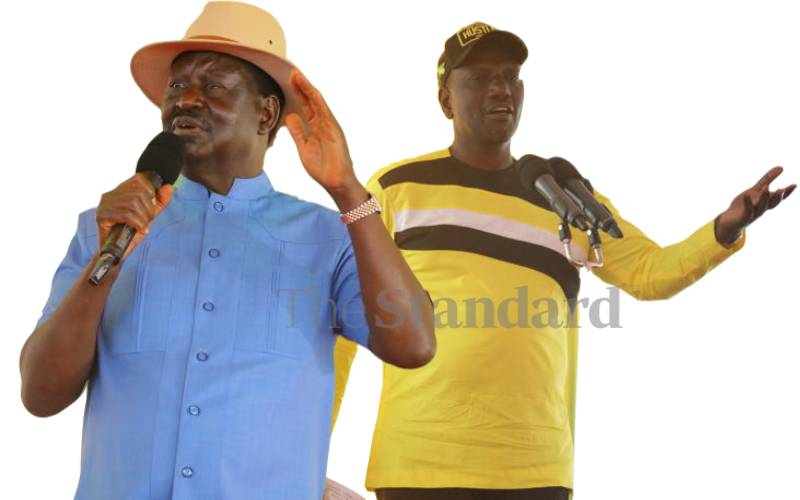×
The Standard e-Paper
Smart Minds Choose Us

ODM leader Raila Odinga and DP William Ruto. [File, Standard]
Despite the national government running on empty, those with the ambition of succeeding President Uhuru Kenyatta next year have made big money promises which critics are now questioning.